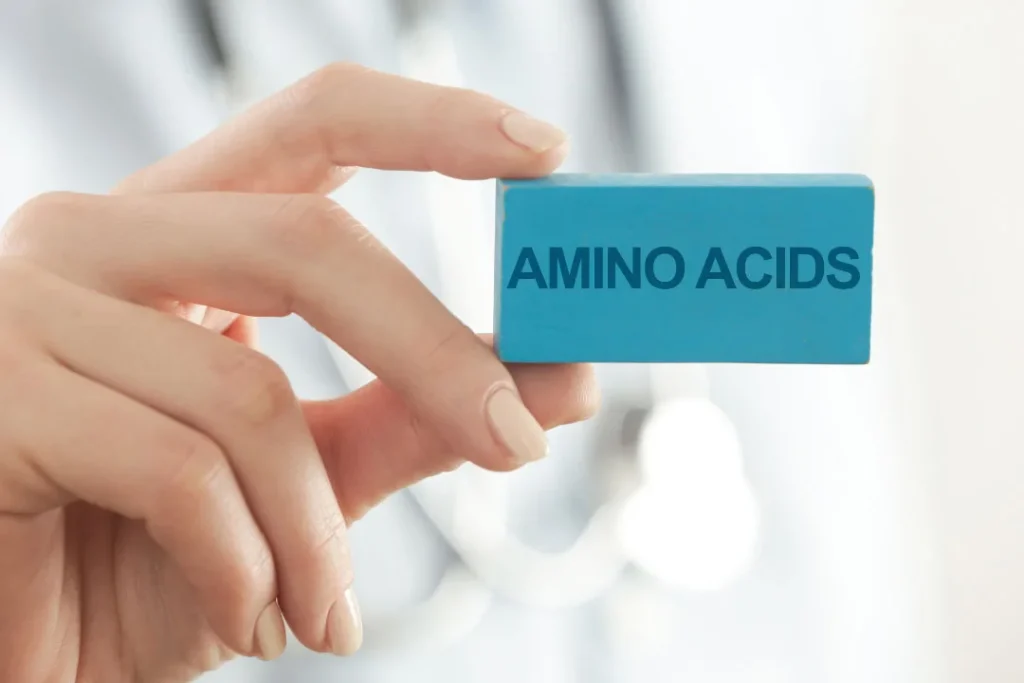Pyridoxine, often known as vitamin B6, is a water-soluble vitamin that is essential for several physiological functions, including the production of proteins, the metabolism of carbohydrates, and the production of neurotransmitters. A vital ingredient for overall health and wellbeing is pyridoxal-5-phosphate (PLP), the active form of vitamin B6 that serves as a cofactor for more than 140 enzymatic reactions. Vitamin B6 has grown in popularity as a nootropic supplement in recent years due to claims that it maintains normal brain development and improves focus and cognition. In this essay, the nature of vitamin B6, its health advantages, ideal dosage, possible adverse effects, drug interactions, and the most responsible way to utilize this nootropic supplement will all be covered.
You May Also Like:
Top 5 Nootropic Adderall Alternatives
5 Great Natural Nootropics and How They Work
Nature of Vitamin B6
The body transforms a group of six related chemicals which is the biological forms of vitamin B6 into its active form, pyridoxal-5-phosphate (PLP). PLP comprises of pyridoxine, pyridoxal, and pyridoxamine. PLP is a crucial cofactor for several enzymatic processes, such as the formation of neurotransmitters, heme, and amino acids. Moreover, PLP controls immunological response, glucose metabolism, and gene expression.
Foods high in vitamin B6 include nuts, beans, whole grains, cattle, chicken, fish, and seafood. The body can absorb and use vitamin B6 depending on the form in which it is eaten, but its bioavailability from these sources is restricted.
The body can use vitamin B6 in its active form, PLP, which is the most accessible and effective form. Brilliance from myPEAK Supplements is a nootropic supplement that is a highly bioavailable and synergistic formulation of PLP.

Health Benefits of Vitamin B6
With numerous advantages for the body and brain, vitamin B6 is crucial for overall health and wellbeing and brings upon numerous important health advantages, including:
1. Supports brain health: Vitamin B6 is essential for the synthesis of neurotransmitters like serotonin, dopamine, and norepinephrine. These neurotransmitters influence cognition, behavior, and mood control. According to studies, taking vitamin B6 supplements can elevate mood, lessen depressive symptoms, and improve cognitive function.
2. Promotes Cardiovascular Health: The metabolism of homocysteine, an amino acid linked to an increased risk of cardiovascular disease, requires vitamin B6. According to studies, taking vitamin B6 supplements help reduce homocysteine levels, soothe inflammation, and enhance blood vessel health.
3. Improves Immune Function: Vitamin B6 is necessary for the synthesis of white blood cells and antibodies, both of which are critical for immune function. According to studies, taking vitamin B6 supplements can boost the immune system and lower the risk of infection.
4. Enhances the health of the skin: Vitamin B6 is involved in the metabolism of amino acids, which are necessary for the creation of collagen, a protein that is crucial for the health of the skin. Supplementing with vitamin B6 has been found to improve skin health, lower the risk of acne, and speed up the healing process after injuries.

The Chemistry and Mechanism of Action of Vitamin B6
Water-soluble vitamin B6, also known as pyridoxine, is essential for a number of metabolic processes in the body. The active form of vitamin B6 is PLP, which functions as a cofactor for more than 140 enzymes involved in the metabolism of proteins, carbohydrates, and lipids.
PLP plays a role in the metabolism of amino acids, specifically in the deamination of amino acids to produce ammonia and the transamination of amino acids to produce new amino acids. Neurotransmitters like serotonin, dopamine, and norepinephrine, which are crucial for controlling mood and cognitive function, must also be produced using PLP.
PLP is essential for the production of nucleic acids like DNA and RNA as well as heme synthesis, a step in the process of creating red blood cells.
By attaching to the active site of enzymes and catalyzing particular chemical reactions, PLP functions as a coenzyme. For instance, tryptophan is converted to niacin by PLP, glucose is used to make glycogen, and homocysteine is broken down into cysteine. Gamma-aminobutyric acid (GABA), a neurotransmitter crucial for maintaining a healthy neurological system, is also metabolized by PLP.
PLP works as a coenzyme by attaching to the active site of enzymes and catalyzing particular chemical reactions, according to its mode of action. PLP is crucial for maintaining a healthy neurological system, amino acid metabolism, and the creation of neurotransmitters and nucleic acids.

Optimal Dosage of Vitamin B6
Depending on your age, gender, and other considerations, a daily dose of vitamin B6 may be advised. The National Institutes of Health advise individuals to consume 1.3 to 1.7 mg per day, with higher needs for women who are pregnant or nursing. To gain the best health advantages, larger vitamin B6 doses might be required, according to some studies.
The ideal vitamin B6 dosage for nootropic use may be higher than the daily dietary recommendation.
Most nootropic users take between 50 and 300 mg of vitamin B6 a day, however, some can have even higher doses. It is crucial to remember that consuming too much vitamin B6 can result in toxicity, which can harm the nerves, cause sores on the skin, and have other negative effects.
For individuals, 100 mg of vitamin B6 per day is the maximum permissible consumption. When beginning a vitamin B6 supplement program, it’s crucial to follow the dosage recommendations and speak with a doctor, especially if you have any pre-existing medical conditions or are on other medications.

Side Effects of Vitamin B6
When used in authorized dosages, vitamin B6 is usually regarded as safe. However, taking too much vitamin B6 can result in toxicity, which can harm your nerves and cause skin lesions and other unwanted side effects. Skin lesions, loss of balance and coordination, and numbness and tingling in the extremities are signs of vitamin B6 toxicity.
Supplemental vitamin B6 may have adverse effects on certain people, such as nausea, vomiting, stomach discomfort, and headaches, in addition to the potential for toxicity. Taking vitamin B6 tablets with food or lowering the dosage will lessen these side effects, which are often moderate.
Substance Interactions with Vitamin B6
Several substances, including prescription drugs and other supplements, can interact with vitamin B6. For instance, vitamin B6 can lessen levodopa’s efficacy as a treatment for Parkinson’s disease. Moreover, it may interfere with several antibiotics, anticonvulsants, and chemotherapy medications.
Furthermore, combining vitamin B6 supplements with other nootropics, like racetams or choline, may improve both supplements’ cognitive effects. However, before beginning a supplement routine, it’s crucial to be cautious when combining supplements and to speak with a medical expert.

Best Responsible Use of Vitamin B6
Following dosage recommendations, selecting premium supplements, and avoiding excessive amounts are the best practices for utilizing vitamin B6 responsibly as a nootropic supplement.
It’s crucial to select a high-quality vitamin B6 supplement that contains the active form of the vitamin, pyridoxal-5-phosphate (PLP). PLP is a nootropic supplement that myPEAK Supplements sells under the name Brilliance. Brilliance is a highly bioavailable and synergistic formulation of PLP.
Vitamin B6:
Conclusion
Vitamin B6 is also known as pyridoxine and it can protect and maintain normal brain development and also strengthen the immune system. This nootropic supplement can function as a cofactor that is involved in important metabolism in the body which as a result able to regulate neurotransmitters crucial for controlling mental performance and regulating mood. This vitamin is high in foods such as nuts, whole grains, beans, etc, yet the bioavailability of this vitamin B6 has certain limitations.
Hence, to ensure sufficient vitamin B6 is absorbed and assimilated, it is recommended to obtain it from a reputable source that has a superior formulation such as Brilliance from myPEAK supplements. Vitamin B6 should be used under careful supervision and in controlled dosage, so seek consultations from your healthcare providers to understand the appropriate way to include it in your daily diet.
.
Important Note: The information contained in this article is for general informational purposes only, and should not be construed as health or medical advice, nor is it intended to diagnose, prevent, treat, or cure any disease or health condition. Before embarking on any diet, fitness regimen, or program of nutritional supplementation, it is advisable to consult your healthcare professional in order to determine its safety and probable efficacy in terms of your individual state of health.
Regarding Nutritional Supplements Or Other Non-Prescription Health Products: If any nutritional supplements or other non-prescription health products are mentioned in the foregoing article, any claims or statements made about them have not been evaluated by the U.S. Food and Drug Administration, and such nutritional supplements or other health products are not intended to diagnose, treat, cure, or prevent any disease.


